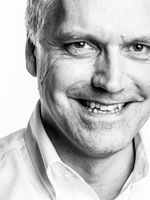 |
John Aunins, PhD view absract | back to agenda
Executive Vice President of Bioprocess & Manufacturing and the Chief Technology Officer, Seres Therapeutics, Inc.
John Aunins is a 24-year veteran in the biotech field, with deep experience in bioprocess development, manufacturing support, and project leadership. He led process and product development teams at Merck Research Laboratories for VAQTA®, VARIVAX®, ZOSTAVAX®, ProQuad®, RotaTeq®, and GARDASIL®. The VAQTA® and GARDASIL ® process teams were awarded with ACS Industrial Biotechnology Awards for innovation, contribution to bioengineering, and societal impact. He is a Fellow of the American Institute for Medical and Biological Engineering, and an adjunct Full Professor at the Instituto de Tecnologia Quimica e Biologica (ITQB) in Oeiras, Portugal. He is author of over 50 articles and book chapters, and has chaired five international conferences in vaccines and bioprocess technology. John obtained his PhD in Chemical Engineering from MIT in 1989 under Institute Professor Daniel C. Wang.. |
 |
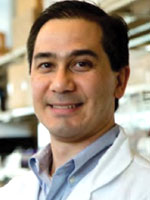

|
Dan Barouch, MD, PhD view abstract | back to agenda
Professor of Medicine, Harvard Medical School
Director, Center for Virology and Vaccine Research, Beth Israel Deaconess Medical Center
Dan Barouch, MD, PhD, is Director of the Center for Virology and Vaccine Research at Beth Israel Deaconess Medical Center. He is also a Professor of Medicine at Harvard Medical School. In addition, he is a key part of the Bill & Melinda Gates Foundation Collaboration for AIDS Vaccine Discovery, the National Institutes of Health Center for HIV/AIDS Vaccine Immunology and Immunogen Discovery, and the Ragon Institute of MGH, MIT, and Harvard.
Dr. Barouch received his PhD in Immunology from Oxford University and his MD from Harvard Medical School.
His laboratory focuses on studying the immunology and virology of HIV-1 infection and developing novel vaccine strategies. His laboratory has explored a series of novel vaccine technologies, including adjuvanted DNA vaccines, poxvirus vectors, and alternative serotype adenovirus vectors in both preclinical and clinical studies. In particular, he has advanced a series of novel adenovirus vector-based HIV-1 vaccine candidates from concept and design to preclinical testing to Phase 1 clinical trials that are currently underway in both the US and sub-Saharan Africa.
Dr. Barouch is board certified in internal medicine and infectious diseases, and he is committed to mentoring students, clinical fellows, research fellows, and junior faculty and to providing clinical care to patients with infectious diseases. |
 |
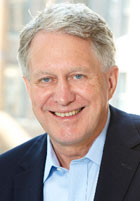 |
Barry C. Buckland, PhD view abstract | back to agenda
Chief Executive Officer, BiologicB, LLC
PhD in Biochemical Engineering at University College London obtained in 1974. Joined the Merck Research Laboratories (MRL) in 1980 and built a world class Bioprocess R&D group. Leader of process development of all biologically made product candidates within the MRL pipeline and manufacture of Clinical Supplies during a 20 year time frame. Products developed within this period include MEVACOR®, ZOCOR®, IVOMEC®, CANCIDAS®, RECOMBIVAX HB®, VAQTA®, VARIVAX®, COMVAX®, RotaTeq® (Rotavirus vaccine), ZOSTAVAX® (shingles vaccine) and GARDASIL® (HPV vaccine).
External awards and appointments include being elected to the National Academy of Engineering in 1997 and Fellow of University College London in 1998. Awards include the Donald Medal, UK Institute of Chemical Engineering in 2002, Prix Galien award: Member of team to receive Vaccine Award for GARDASIL® in 2007, Merck Board of Directors Award for leading process development for licensure of four (4) new vaccines in 2007. Chaired two International Conferences on Cell Culture (Cell Culture Engineering IV and Cell Culture Engineering V) and co-chaired the first three International Conferences on Metabolic Engineering. Co-chaired the first two International Conferences on Vaccine Technology. Author or co-author of over 70 papers. Visiting Professor at University College London for past 15 years. In October 2008, named by AIChE as one of the “One Hundred Chemical Engineers of the Modern Era” (defined as from World War II to Present) as part of the AIChE Centennial Celebration in Philadelphia, USA and also awarded Marvin Johnson Award by ACS (American Chemical Society) for lifetime contribution to Biotechnology. Awarded PhRMA Discoverer of the Year award in April 2009 for development of the Merck HPV vaccine (along with Eliav Barr and Kathrin Jansen).
Starting in May 2009; CEO, BiologicB. Since this time have provided consultancy worldwide to a number of companies and not-for-profit institutions, in all areas of Biologics including Vaccines and Therapeutic Proteins. Member of Board of Directors for Ancora and Mucosis. Chair of Board for a not-for-profit organization, Engineering Conferences International. Continue as Visiting Professor at University College London. Founder and Board Member of start-up company Enumeral Biomedical. Head, Bioprocess Development at Protein Sciences. The first recombinant Shingles vaccine, Flublok®, was licensed in January 2013. |
 |
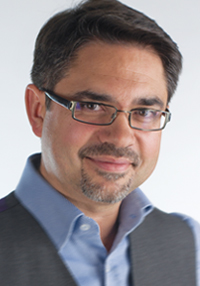 |
José Castillo, PhD view abstract | back to agenda
Co-Founder and Chief Technology Officer, Univercells
After working as the head of viral vaccine industrialization at GSK Vaccines, he started up Artelis with a small group of developers in 2006. At Artelis, he designed and developed bioreactors that transformed industrial operations. With his team, he developed the iCellis system and transferred it for more than 50 viral processes over the world. The technology is now marketed by PALL, where Jose held the position of Director of Cell Culture Technologies. With the same group of developers, he started up Univercells in 2013, aiming to develop disruptive manufacturing platforms that significantly impact affordability to vaccines and antibodies.
With a background in Chemical Engineering, Jose’s education includes a PhD in Applied Sciences from the Université libre de Bruxelles, and an entrepreneurship degree from the Solvay Business School.
As Univercells’ CTO, he is now the architect of highly efficient production processes that will make cell culture available and affordable for all. The goal is to disrupt the industry and become the leader of comprehensive manufacturing solutions. |
 |
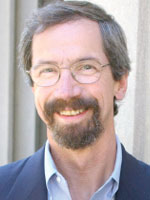 |
Charles L. Cooney, PhD view abstract | back to agenda
Robert T. Haslam (1911) Professor of Chemical Engineering Emeritus, Department of Chemical Engineering; Faculty Director Emeritus, Deshpande Center for Technological Innovation, Massachusetts Institute of Technology
Charles L. Cooney received his BS in Chemical Engineering from the University of Pennsylvania in 1966, and the SM (1967) and PhD (1970) in Biochemical Engineering from MIT. After a short post-doc at the Squibb Institute for Medical Research, he joined the MIT faculty as an Assistant Professor in 1970, becoming full Professor in 1982.
Cooney’s honors include the 1989 Gold Medal of the Institute of Biotechnological Studies (London); the Food, Pharmaceutical, and Bioengineering Award from the American Institute of Chemical Engineers; the James Van Lanen Distinguished Service Award from the American Chemical Society’s Division of Microbial and Biochemical Technology; election to the American Institute of Medical and Biochemical Engineers and a Fellow of the American Chemical Society.
A consultant to multiple biotech and pharmaceutical companies, Cooney sits on the boards of Polypore International, Biocon, Ltd. (India) and multiple private companies (GreenLight Bioscience, Mitra Biotech, Pronutria Biosciences, Boyd Technologies, enEvolve, Inc., Levitronix). His research and teaching interests span many aspects of biochemical engineering and pharmaceutical manufacturing and accelerating technological innovation. |
 |
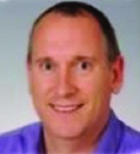 |
Matthew Downham, PhD view abstract | back to agenda
Associate Director, AstraZeneca
Dr. Downham studied for a Bachelor of Sciences degree (with honours) in Industrial Biology at London South Bank Polytechnic (UK) which included a placement with Boehringer Mannheim, now Roche (Germany). He then completed a PhD in Biochemical Engineering (Birmingham University, UK), a post-doctoral fellowship in biomolecular sciences (Liverpool John Moores University, UK) and a post-graduate certificate in further/higher education (Bolton Institute, UK). He joined the biopharmaceutical industry in 1997 and has worked for Protherics (UK), Bavarian Nordic (Germany), Morphosys (Germany) and Novartis Vaccines & Diagnostics (Italy). Throughout this time Dr. Downham worked on preclinical and early clinical development of vaccine, antibody or enzyme therapies for infectious, hypertension, inflammatory and oncology indications. He is a certified European Registered Toxicologist (2010-2021) and has co-authored 29 publications/ abstracts and 3 international patents. Dr. Downham joined the influenza vaccine franchise of AstraZeneca/Medimmune (UK) in February 2013 as an Associate Director, Flu Manufacturing Sciences & Technology now within the Biopharmaceutical Development (R&D) department. In this position, he has been deputy head of Flu MS&T (a.i. head of department Apr-Dec 2015) and leads the influenza vaccine external scientific and technical affairs activities. Dr. Downham is Chair of the Vaccine Europe Influenza working group and, a Core Team member (as Treasurer) of the International Federation of Pharmaceutical Manufacturers & Associations: Influenza Vaccine Supply task force. |
 |
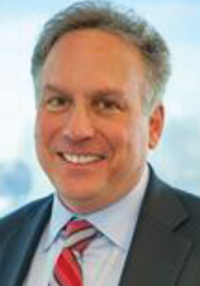 |
Mark Feinberg, PhD view abstract | back to agenda
President and Chief Executive Officer, International AIDS Vaccine Initiative
Mark Feinberg MD, PhD is President and CEO of the International Vaccine Initiative (IAVI). He is a physician-scientist who has been actively engaged in basic, translational and clinical research, and patient care and health care policy with a primary focus on HIV/AIDS pathogenesis, treatment and prevention research and on the biology of emerging infectious diseases. Dr. Feinberg has served on the faculty of the University of California, San Francisco and the Emory University School of Medicine, and as a Medical Officer in the Office of AIDS Research at the National Institutes of Health. Between 2004-2015, he was Vice President and Chief Public Health and Science Officer for Merck Vaccines. He currently serves as Chair of the Scientific Advisory Committee of the Collaboration for Epidemic Preparedness Innovations. |
 |
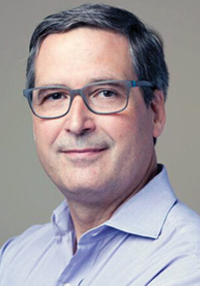 |
Stephen W. Hadley, PhD view abstract | back to agenda
Senior Program Officer, Vaccine Development, Bill & Melinda Gates Foundation
Steve Hadley is a Senior Program Officer for Vaccine Development (CMC). His role at the Foundation is to provide support to PST’s that require process development, manufacturing and analytical testing of recombinant proteins and monoclonal antibodies to further their strategies. He is also involved in assessing new bioprocessing technologies that enable low cost production of biologics.
Before arriving at the Foundation, Steve was Vice President of Quality for CMC Biologics, a biologics contract development and manufacturing organization, and was responsible for oversight of the quality assurance, quality control and analytical/formulation development activities for the company. During his tenure at CMC Biologics, the organization executed several facility expansion projects and GMP compliance initiatives to prepare for successful EMA and FDA pre-approval inspections. |
 |
 |
Adrian Hill, PhD view abstract | back to agenda
Director, Jenner Institute and Professor of Human Genetics, University of Oxford
Adrian V.S. Hill is a Professor of Human Genetics and Director of the Jenner Institute, University of Oxford, who leads research programmes in vaccine development and the genetics of susceptibility to tropical infectious diseases. The Institute is currently conducting Phase 1/2 vaccine trials for malaria, tuberculosis, pandemic influenza, meningitis, HCV, RSV and HIV. His group has also designed and developed candidate vaccines for malaria currently in field trials in endemic countries and has undertaken over fifty clinical trials to evaluate new vaccine technologies. He has published about 500 research papers, and is a Fellow of the UK Academy of Medical Sciences and of the Royal College of Physicians and a Wellcome Trust Senior Investigator. |
 |
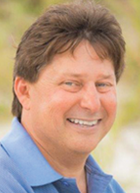 |
Stephen A. Kolodziej, PhD view abstract | back to agenda
Associate Research Fellow-Group Leader, Pfizer, Inc.
Steve has been an Associate Research Fellow in the Conjugation and Polytides Process Development group at the Pfizer-St. Louis site since 2010, where his team has focused on process development of polysaccharide-protein and other protein conjugates as biotherapeutic drug candidates for vaccine (prophylactic and therapeutic), oncology and cardiovascular indications. Prior to this position, he spent 16 years in the Discovery Medicinal Chemistry groups of Searle, Pharmacia, then Pfizer developing novel small molecule candidates as potential therapies for inflammatory diseases, as well as developing novel approaches to PK modulation via protein conjugation. Steve has a BA and a PhD in Organic Chemistry from the University of Missouri. |
 |
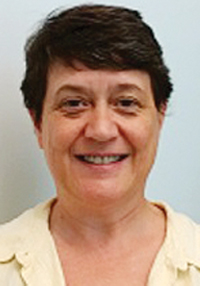 |
Robin Levis, PhD back to agenda
Deputy Director, Division of Viral Products, Office of Vaccines Research & Review, Center for Biologics Evaluation and Research, US Food and Drug Administration
Dr. Robin Levis has worked at the US Food and Drug Administration since 1995. She is currently the Deputy Director of the Division of Viral Products in the Office of Vaccines Research and Review at CBER/FDA; a position she has held since 2006. Prior to this position, she served as the Regulatory Coordinator for the Division of Viral Products (2002-2006) and served as a Senior Staff Fellow in the Laboratory of Vector Borne Viral Diseases (1995-2002). Her initial research work at the FDA related to flavivirus replication and the role of the NS1 protein. She then transitioned to being the lead CMC reviewer for licensed rabies virus vaccine products and rabies vaccine and related products under development. In addition to her work on rabies, Dr. Levis served as the primary CMC reviewer for the Human Papillomavirus (HPV) vaccines to prevent cervical and related cancers. She was the chair of the licensing committee for the review and approval of Cervarix®, an HPV vaccine made using the Baculovirus expression system to produce viral antigens.
Prior to coming to the FDA, Dr. Levis received her PhD from Washington University in St. Louis, Missouri in 1988. She conducted two post-doctoral fellowships. One at the NIH working on polyoma- and papillomavirus replication and the second at The Uniformed Services University of Health Sciences on species specificity of viral replication of human coronaviruses. |
 |
 |
J. Christopher Love, PhD view abstract | back to agenda
Associate Professor of Chemical Engineering, Koch Institute, Massachusetts Institute of Technology
J. Christopher Love is Associate Professor in Chemical Engineering and member of the Koch Institute for Integrative Cancer Research at MIT. In addition, Chris is an associate member at the Eli and Edythe L. Broad Institute, and at the Ragon Institute of MGH, MIT, and Harvard. Dr. Love received his PhD in 2004 in Physical Chemistry at Harvard University. He extended his research into immunology at Harvard Medical School from 2004-2005, and at the Immune Disease Institute from 2005-2007. His research centers on using simple microsystems to measure and correlate multiple phenotypic and functional characteristics of individual lymphocytes, and from these single-cell data, generate quantitative, system-wide profiles of immune responses. Current areas of research in the lab include
i) multiplexed, functional profiling of lymphocytes from HIV+ patients,
ii) clonal analysis of autoreactive T cells and B cells in type 1 diabetes and multiple sclerosis, and
iii) development of quantitative, cell-based diagnostics for allergy testing.
In addition, his lab is understanding how to engineer microbial strains for manufacturing therapeutic antibodies. Dr. Love was named a Dana Scholar for Human Immunology and a Keck Distinguished Young Scholar in Medical Research in 2009, as well as one of Popular Science’s Brilliant 10 in 2010. Chris is also a Camille Dreyfus Teacher-Scholar. |
 |
 |
Tarit Mukhopadhyay, EngD view abstract | back to agenda
Senior Lecturer, Department of Biomedical Engineering, University College London
Tarit is a lecturer in the Department of Biochemical Engineering at University College London. For the past ten years he has been working in the field of vaccine bioprocess development on a range of bacterial and virus vaccines. His early work with the Health Protection Agency involved working on two vaccines of commercial interest, a novel Meningitis B vaccine based upon the outer membrane proteins of N.lactamica and the UK licensed Anthrax vaccine. In both cases scale-down tools were used to improve the manufacturing process of these vaccines and in the case of the Anthrax vaccine, half the manufacturing time.
Since then his research targets include the upstream and downstream processing of conjugate vaccines and virus vectors such as adenovirus, AAV and lentivirus. These include thermo-stable formulation of lentiviruses, novel chromatographic separation techniques for AAV and high-cell density production of adenoviruses.
In 2014, Tarit joined the EU funded (FP7) FLUTCORE consortium to utilise virus like particles to create a universal influenza vaccine expressed in Pichia pastoris. The idea is to create a platform manufacturing process that is independent of antigen switching.
A main focus of his research is scale-down and scale-up. The primary methodology is to create scale-down models that mimic the processing environment to determine CQA/CPP that can be accurately applied to the commercial scale. The obvious benefits of this are reducing time to market and cost. |
 |
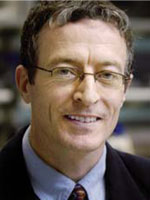 |
Derek O’Hagan, PhD view abstract | back to agenda
Global Head of Discovery Support and New Technology, GlaxoSmithKline
Derek O’Hagan, PhD is the Global Head of Discovery Support and New Technology, in the Technical Research and Development group at GSK Vaccines, Rockville. Formerly, he was the Global Head of Vaccine Chemistry and Formulation for Novartis Vaccines. O’Hagan has co-authored >140 original research publications, >60 book chapters and reviews and is named inventor on >60 filed patents. He was awarded the Conference Science medal of the Royal Pharmaceutical Society of Great Britain in 1997, and the Young Investigator Research Achievement Award of the Controlled Release Society in 1999. O’Hagan is a Fellow of the American Association of Pharmaceutical Scientists. |
 |
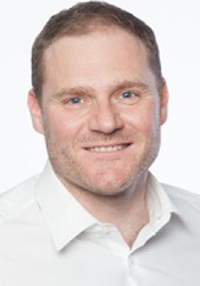 |
Alain Pralong, PhD view abstract | back to agenda
Chief Executive Officer, Pharma-Consulting ENABLE GmbH
Alain Pralong obtained his doctorate in Molecular and Cellular Biology at the University of Berne in 2000. His research into apoptosis was conducted jointly between the University and Novartis, where all laboratory-based investigations were carried out. From 2000 to 2004 he worked on manufacturing Adenovaccine clinical trial material at Schering-Plough. Following a move to Roche in 2004, he managed their transfer of AVASTIN® process manufacturing from Genentech. From 2007 to 2008, he worked at Merck-Serono in the manufacturing of hormones used in treatment of infertility. In 2008, Alain became Vice President at Crucell where he led the Global Process Development Department working on various monoclonal antibodies and vaccines until the take over of Crucell by Johnson & Johnson in 2011. Alain then worked as interim as consultant for Pharma-Consulting ENABLE GmbH. Since November 2011, Alain works at GSK Biologicals in Belgium as Vice President for New Product Introduction. |
 |
 |
David K. Robinson, PhD back to agenda
Principal Consultant and Owner, Robinson Vaccines and Biologics LLC
David Robinson is an independent consultant with 25 years experience specializing in global vaccine and biologics product commercialization, process development and CMC regulatory strategy and execution. During his career at Merck, David held VP positions heading the Bioprocess R&D, Biologics Project Leadership and the CMC Regulatory groups. David also chaired the CMC development team that achieved approval of RotaTeq®, an oral live virus vaccine, headed the product development teams that entered Merck’s first antibody and first biosimilar into clinical studies and led the CMC regulatory group that gained approval of the first anti-PD1 immunooncology mAb in the US, Keytruda®. Both RotaTeq® and KEYTRUDA® won Prix Galien Awards as the best biotechnology products for their respective years. David received his Bachelor’s degree in Chemical Engineering from U.C. Berkeley, his PhD from MIT and did postdoctoral research at the Swiss Federal Institute of Technology. |
 |
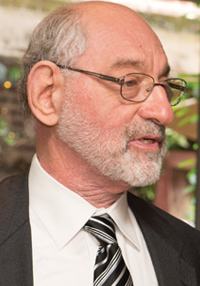 |
Robert Sitrin, PhD view abstract | back to agenda
Senior Scientist Process Development, PATH
Robert Sitrin, PhD is a Bioanalytical leader with a 35+ year career at Merck and GSK in vaccine R&D, registration, manufacturing, and process improvements. He built effective downstream process and bioanalytical departments to support the licensure of eight new vaccines. Dr. Sitrin pioneered the application of modern biochemical tools to vaccine products and was a leader in applying analytical comparability to expedite license process changes for vaccines. His global experience includes establishment of QC testing labs in emerging markets and authoring CMC regulatory submissions in North America and EU.
Dr. Sitrin is currently a part time internal CMC consultant at PATH, Seattle Washington where he provides technical input into vaccine projects targeted for developing country manufacturers. He also maintains a separate vaccine consulting practice, SitrinSolutions, LLC. He was previously an Executive Director in the Merck Manufacturing Division’s Vaccine Manufacturing Sciences and Commercialization (Bioanalytics) area, which was responsible for late stage development and post licensure support of Merck’s multibillion vaccine franchise.
Dr. Sitrin spent the bulk of his career at Merck Research Labs leading teams in the Bioprocess R&D group, including downstream processing, bioanalytics, and CMC registration for vaccines and biologics. Prior to Merck, he was at GlaxoSmithKline in the antibiotics and natural products drug discovery areas.
Dr. Sitrin obtained his SB in Chemistry from the Massachusetts Institute of Technology and a PhD in Synthetic Organic Chemistry at Harvard University under Robert B. Woodward. He had a Postdoctoral Fellowship at the Woodward Research Institute (CIBA Geigy) in Basel, Switzerland. |
 |
 |
Stacy L. Springs, PhD view abstract | back to agenda
Executive Director, BioMAN and CAACB; Senior Director of Programs, Center for Biomedical Innovation, Massachusetts Institute of Technology
Associate Institute Director, The National Institute for Innovation in Manufacturing Biopharmaceuticals (NIIMBL)
Dr. Stacy L. Springs is the Senior Director of Programs at MIT’s Center for Biomedical Innovation. She serves as Executive Director of both the Biomanufacturing Program (BioMAN) and the Consortium on Adventitious Agent Contamination in Biomanufacturing (CAACB). The objective of the BioMAN is to develop new knowledge, science, technologies and strategies that advance the manufacture and global delivery of high quality biopharmaceuticals. The CAACB pools biopharmaceutical manufacturing expertise in the area of adventitious agent contamination to better enable the safe and dependable delivery of life-saving biologics. Dr. Springs has also been appointed the Associate Director of the National Institute for Innovation in Manufacturing Biopharmaceuticals (NIIMBL), a NIST-funded public-private consortium which is a member of the Manufacturing USA network and is the only national institute dedicated to advancing biopharmaceutical manufacturing innovation. Prior to joining MIT, she was a Senior Scientist and Director of Collaborative Projects at Tetralogic Pharmaceuticals, an oncology drug discovery company based in Malvern, PA. Her academic background includes a PhD in Chemistry from the University of Texas at Austin and postdoctoral training in protein and biophysical chemistry at Princeton University. |
 |
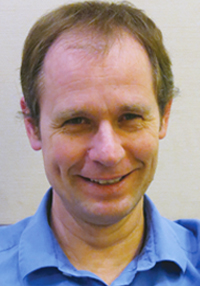 |
Wim Van Molle, PhD back to agenda
Vaccine Release Responsible and Quality Assessor, Scientific Institute of Public Health, Wetenschappelijk Instituut Volksgezondheid
Dr. Wim Van Molle is working at the Scientific Institute of Public Health (IPH), Belgium, in the division of Biological Standardisation, where he is responsible for vaccine batch release and evaluation of the quality part of registration and variation dossiers of vaccines and biologicals. Wim is also actively involved in scientific advice procedures at national and European level and participates as product expert in GMP inspections on the request of the Belgian (FAMHP) and European (EMA) medicines agency. Dr. Van Molle is a member of the Vaccine Core Group and observer at the Vaccine Working Party, both at the EMA, and is actively involved in European IMI projects.
At the IPH, he is manager of the unit for Cellular and Molecular Biology and Biochemistry, involved in quality release testing of vaccines and blood derived medicinal products.
Wim works as auditor for the European Directorate for the Quality of Medicines (EDQM), Strasbourg, France where he is frequently asked to participate in mutual joined audits of European control laboratories. He is also in firm collaborations with the World Health Organization (WHO) as temporary advisor in the framework of the regulatory strengthening of regulatory authorities (NRA assessments) and the Global Learning Opportunities program on vaccine dossier evaluation.
Dr. Van Molle holds a Master in Biotechnology and obtained a PhD in Molecular Biology from the University of Ghent, Belgium and worked for over 10 years in the academic field, followed by a 2 year period at the Belgian regulatory authority before joining the Institute of Public Health. |
 |
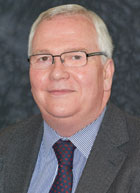 |
Martin Wisher, PhD view abstract | back to agenda
Head of Regulatory Affairs, BioReliance
Dr. Wisher has more than 30 years of experience in biosafety testing and validation. He has worked for BioReliance, UK since the company was founded in Stirling in 1990, acting as Scientific Director since 1993. He has extensive experience in the technical, scientific, quality and regulatory aspects of the development of biological products including vaccines and viral vectors and provides consultancy in these areas. Prior to joining BioReliance, Dr. Wisher worked for Inveresk Research as Manager of Immunology, responsible for biosafety services. He obtained a PhD in Membrane Biochemistry from the National Institute for Medical Research, London and prior to moving to the contract research industry was involved in research on membrane receptors, monoclonal antibodies and recombinant vaccines. |
 |
|
|
|

